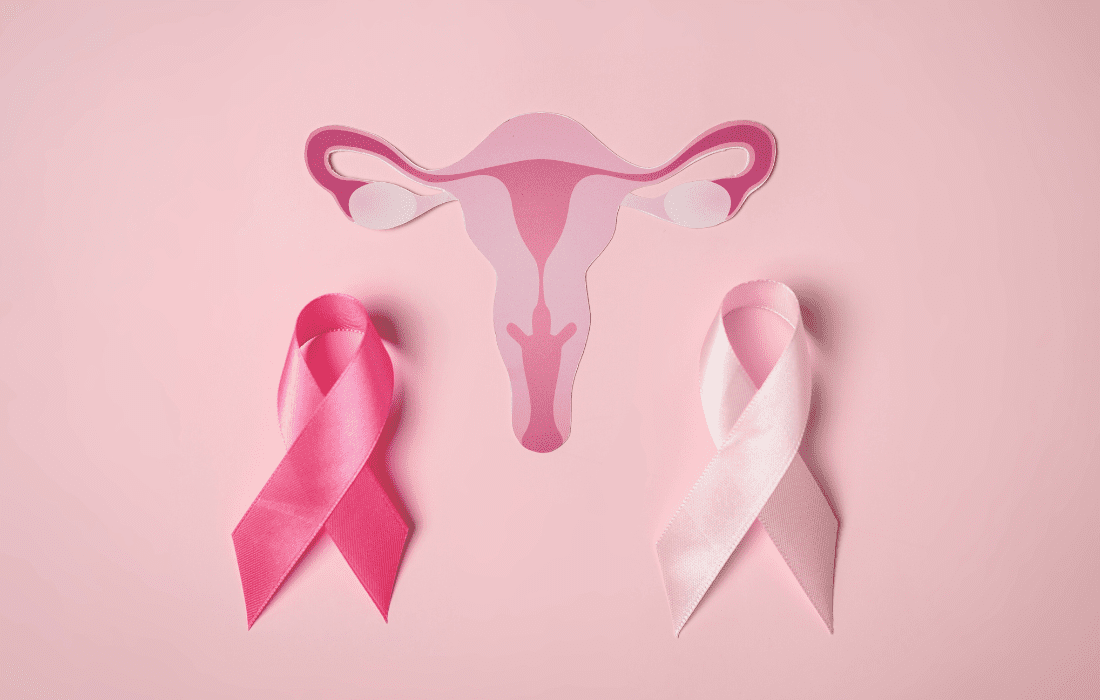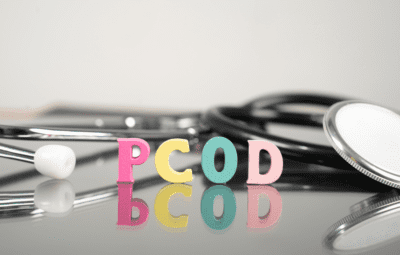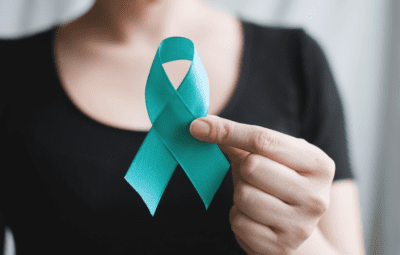PCOD and PCOS Difference – A Closer Look at PCOD and PCOS Differences

There is sometimes confusion between PCOD and PCOS difference. Still, these are different diseases with their features. For an accurate diagnosis and course of treatment, it is essential to comprehend the distinctions between PCOD and PCOS. Let’s explore these conditions’ nuances.
Introduction
Brief Overview of PCOD and PCOS
PCOD (polycystic ovarian disorder) and PCOS (polycystic ovarian syndrome) are hormonal disorders affecting the ovaries. While PCOD is primarily characterized by cysts on the ovaries, PCOS involves a broader spectrum of symptoms, including hormonal imbalances. The confusion arises due to overlapping symptoms, but a closer look reveals their unique features.
Importance of Understanding the Differences
Recognizing the disparities between PCOD and PCOS is vital for tailored healthcare approaches. Each condition requires specific diagnostic criteria and treatment strategies. Let’s explore these dissimilarities step by step.
Understanding PCOD
Definition and Characteristics
PCOD is characterized by multiple small cysts on the ovaries, affecting the egg development process. Hormonal imbalances, particularly elevated androgens, contribute to irregular menstrual cycles and other symptoms.
May You Like This – Indian Home Remedies for Blood Pressure
Causes and Risk Factors
Various factors, including genetic predisposition and insulin resistance, contribute to PCOD development. Obesity, sedentary lifestyle, and hormonal fluctuations further increase the risk.

Symptoms of PCOD
Symptoms include irregular periods, acne, weight gain, and hair thinning. Women with PCOD may also experience fertility challenges. Early detection and management are crucial for addressing these issues.
Delving into PCOS
Definition and Features
PCOS is a broader hormonal disorder involving not only ovarian cysts but also irregular menstruation, excess androgens, and metabolic disturbances. It affects not just reproductive health but also overall well-being.
Distinctive Symptoms
In addition to ovarian cysts, PCOS manifests with symptoms like hirsutism, acne, and scalp hair thinning. The condition is also linked to insulin resistance, contributing to metabolic complications.
Factors Contributing to PCOS
Genetic factors, insulin resistance, and inflammation play roles in PCOS development. Hormonal imbalances lead to a range of symptoms affecting both physical and emotional health.
PCOD vs. PCOS: The Key Differences
Hormonal Variations
While both conditions involve hormonal imbalances, PCOS is marked by elevated androgens and insulin resistance. PCOD, on the other hand, primarily involves disruptions in estrogen and androgen levels.
Reproductive Health Implications
PCOD mainly impacts ovulation and fertility, while PCOS extends its influence to irregular menstrual cycles, fertility challenges, and an increased risk of pregnancy complications.

Diagnostic Criteria Differences
Diagnosing PCOD requires the presence of specific ovarian cysts and irregular periods, whereas PCOS diagnosis involves criteria such as hyperandrogenism and irregular menstruation, with ovarian cysts being optional.
Treatment Approaches for Each Condition
PCOD management focuses on lifestyle modifications, weight management, and symptom-specific medications. PCOS treatment includes regulating menstrual cycles, managing fertility concerns, and addressing metabolic aspects.
Breaking Down Hormonal Variations
Role of Insulin Resistance
Insulin resistance plays a significant role in both PCOD and PCOS. Addressing insulin resistance through lifestyle changes and medications is crucial for managing symptoms and preventing complications.
Impact on Androgens and Estrogen
Understanding how hormonal imbalances affect androgens and estrogen is key to comprehending the diverse symptoms of PCOD and PCOS. Balancing these hormones is a primary focus in treatment.
How Hormonal Imbalances Manifest Differently in PCOD and PCOS
The manifestation of symptoms, such as hirsutism and acne, varies in PCOD and PCOS due to differences in hormonal profiles. Tailored treatment plans consider these nuances.
Reproductive Health Implications
Effect on Menstrual Cycles
Both PCOD and PCOS influence menstrual cycles, causing irregularities. PCOS, however, often leads to more severe irregularities and poses a higher risk of fertility challenges.
Fertility Concerns in PCOD and PCOS
While fertility concerns are common in both conditions, PCOS presents a more complex picture with additional factors such as metabolic disturbances impacting conception.

Managing Reproductive Health with Each Condition
Individualized approaches, including fertility treatments and lifestyle adjustments, are essential for managing reproductive health in both PCOD and PCOS.
Diagnostic Criteria Differences
Specific Criteria for Diagnosing PCOD
Diagnosing PCOD involves transvaginal ultrasound to detect ovarian cysts, along with irregular periods. A comprehensive evaluation is crucial for accurate diagnosis.
Distinct Diagnostic Criteria for PCOS
PCOS diagnosis considers hyperandrogenism, irregular menstruation, and, optionally, ovarian cysts. The Rotterdam criteria provide guidelines for accurate identification.
Importance of Accurate Diagnosis
Accurate diagnosis is pivotal for effective management. Misdiagnoses can lead to inappropriate treatment plans, emphasizing the importance of thorough assessments.
Treatment Approaches for PCOD
Lifestyle Modifications
Adopting a healthy lifestyle, including regular exercise and balanced nutrition, is foundational for managing PCOD. Weight management plays a crucial role in symptom alleviation.
Medications for Symptom Management
Medications targeting specific symptoms, such as irregular periods or acne, are prescribed based on individual needs. Regular follow-ups with healthcare providers are essential.
Importance of Weight Management
Maintaining a healthy weight is particularly crucial in PCOD management. Weight loss can improve symptoms and enhance overall well-being in individuals with PCOD.
Treatment Approaches for PCOS
Medications to Regulate Menstrual Cycles
Hormonal medications, such as birth control pills, may be prescribed to regulate menstrual cycles in individuals with PCOS. Regular monitoring is essential to adjust treatment as needed.
Addressing Fertility Concerns
PCOS-related fertility concerns often require a multidisciplinary approach, involving reproductive specialists. Assisted reproductive technologies may be considered based on individual circumstances.
Lifestyle Changes for PCOS Management
Dietary modifications, exercise, and stress management are integral parts of PCOS management. These lifestyle changes aim to address insulin resistance and improve overall health.
Living with PCOD and PCOS
Coping Strategies for Managing Symptoms
Developing coping strategies, such as mindfulness and stress reduction techniques, can help individuals manage the physical and emotional challenges associated with PCOD and PCOS.

Emotional and Psychological Aspects
The impact of PCOD and PCOS extends beyond physical symptoms, affecting emotional well-being. Seeking support from healthcare professionals and support groups is crucial.
Support Systems and Resources Available
Numerous resources, including online communities and educational materials, offer support and information for individuals living with PCOD and PCOS. Building a robust support system is essential.
Addressing Common Misconceptions
Debunking Myths about PCOD and PCOS
Dispelling common myths and misconceptions helps create a more accurate understanding of these conditions. Education is a powerful tool in fostering awareness.
Clarifying Misunderstandings
Addressing misunderstandings, such as the belief that PCOD and PCOS are the same, contributes to better communication between healthcare providers and individuals seeking information.
Importance of Early Detection
Impact on Long-Term Health
Early detection and intervention significantly impact long-term health outcomes. Timely management reduces the risk of complications and enhances overall quality of life.
The Role of Regular Check-Ups
Regular check-ups, including gynecological exams and hormonal assessments, are crucial for monitoring and managing PCOD and PCOS. Proactive healthcare measures contribute to better outcomes.
Seeking Professional Guidance
Importance of Consulting Healthcare Professionals
Self-diagnosis can lead to misinformation and inappropriate management. Consulting healthcare professionals ensures accurate assessments and personalized treatment plans.
Building a Healthcare Team for Holistic Management
Establishing a healthcare team, including gynecologists, endocrinologists, and nutritionists, creates a comprehensive approach to managing PCOD and PCOS. Collaboration enhances the effectiveness of treatment strategies.
Conclusion
In conclusion, understanding the differences between PCOD and PCOS is pivotal for effective management. From hormonal variations to reproductive health implications and treatment approaches, acknowledging the nuances of each condition is essential. By fostering awareness and dispelling misconceptions, we can create a supportive environment for individuals navigating the challenges of PCOD and PCOS.
Unique FAQs
Can PCOD turn into PCOS?
PCOD can progress to PCOS if hormonal imbalances and symptoms worsen over time. Regular monitoring and early intervention can help prevent this progression.
Is it possible to conceive with PCOS?
Yes, it is possible to conceive with PCOS, but fertility challenges may require specialized interventions. Consultation with a reproductive specialist is recommended for personalized guidance.
Do all women with PCOD have cysts on their ovaries?
Not necessarily. While ovarian cysts are a common feature of PCOD, they may not be present in all cases. Diagnosis involves a comprehensive evaluation of symptoms and criteria.
Are there natural remedies for managing PCOD and PCOS?
Lifestyle modifications, including a healthy diet and regular exercise, can be beneficial in managing symptoms. However, consult with healthcare professionals for personalized advice.
Can PCOD and PCOS be completely cured?
There is no definitive cure for PCOD and PCOS, but effective management can alleviate symptoms and improve quality of life. Individual responses to treatment vary.



